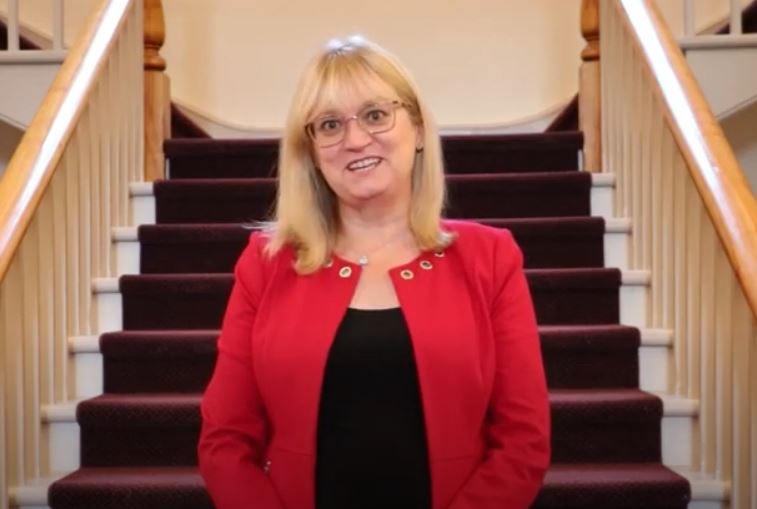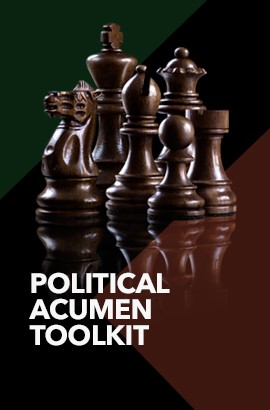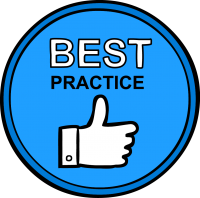|
CAMA E-Brief
| e-Brief |
November 26, 2020 |
MESSAGE FROM CAMA BOARD OF DIRECTORS
|

Listen to the message from Brenda Orchard,
CAMA Board Representative for Ontario,
outlining the Board’s upcoming activities. |
|
| The 2020 CAMA Awards Recipients |
| We are pleased to feature the 2020 Award Winners over the next few editions of e-Brief. |
|
| Congratulations to Strathcona County - 2020 Willis Award for Innovation – Population Category Between 20,001 and 100,000 |

Given the opioid crisis happening across the country and in our own backyard, Strathcona County started to address this social issue by asking “How can we better understand this drug that is killing so many of our loved ones and community members?” and “How can we create more compassion for those struggling with this addiction?”
Opioids Don’t Discriminate: An Interactive Experience was an interactive installation that profiled local statistics, opioid information and local support organizations, while immersing participants in an interactive journey through the stories of three fictionalized characters: Natasha, David and Max. As they went through the exhibit, participants learned about the science of addiction, the impact of opioids and how the crisis is affecting us all. The stories, based on true experiences, addressed the stigmas around people who use drugs, while building empathy about substance use disorders.
This free exhibit was open to the public and welcomed approximately 1,200 visitors in its two viewings in November 2018 and from April 30 to May 3, 2019. Afterwards, participants reported that they felt more compassionate towards those struggling with opioid addiction. To learn more about this project view the video. |
|
| Congratulations to The City of Waterloo - 2020 Willis Award for Innovation – Population Category Over 100,000 |

Beneficial ReusSediment disposal from Stormwater Management Facilities (SWMF) is a growing concern for municipalities across Ontario and Canada as these SWMF age and require cleanout. Historically, Ontario’s environmental regulatory framework has resulted in SWMF sediment being disposed of in landfills. This is costly and unsustainable, due to limited landfill capacity and high material volumes.
The City of Waterloo recently conducted a pilot study to evaluate beneficial reuse of SWMF sediment as a sustainable alternative to landfill disposal. The City collaborated with the MECP and Francine Kelly-Hooper, Ph.D. to obtain the first Environmental Compliance Approval in Ontario to beneficially reuse SWMF sediment as a replacement for topsoil in a City right-of-way.
The results demonstrated that amended sediment can provide a practical and sustainable alternative to topsoil for plant growth. The sediment was diverted from the landfill and successfully reused as a beneficial landscaping alternative, reducing waste and disposal costs. Based on the success of the pilot project, the City of Waterloo intends to continue to work with the MECP and to further explore beneficial reuse as a sustainable practice for all future SWMF cleanout projects. For more information, view the video |
|
| POLITIC ACUMEN & PUBLIC ENGAGEMENT |
 Recognizing the importance of political understanding in the role of senior municipal administrators, also referred to as political acumen, the Canadian Association of Municipal Administrators (CAMA) launched a Political Acumen Toolkit. This resource can be found at politicalacumen.camacam.ca Recognizing the importance of political understanding in the role of senior municipal administrators, also referred to as political acumen, the Canadian Association of Municipal Administrators (CAMA) launched a Political Acumen Toolkit. This resource can be found at politicalacumen.camacam.ca
“Public participation,” “stakeholder engagement,” “social license to operate,” “community relations,” or any iteration thereof, all refer to one thing, your ability to work with those who are impacted by a decision to achieve buy-in and avoid opposition. Today, the public play a more significant role than ever in the decision-making process of organizations. Whether you are an oil and gas company trying to build a facility or pipeline, or a municipality trying to create a new subdivision or host the Olympics, you need to engage your stakeholders as part of the decision-making process. Social license to operate, specifically public support for your organization or an initiative (or in some cases merely a lack of disapproval), is vital to implementing any project or change successfully. Indeed, this was the foundation of the democratic system our governance structure is built upon, and citizens, particularly marginalized groups, are now beginning to reclaim their voice in the process.
In relation to public participation, political acumen is knowing when to engage residents and ratepayers and to what level. Engagement can range from one-way educational or informational transactions to a collaborative effort between residents, Administration and Council, or even the full transference of decision-making power to the public (e.g. through a plebiscite). As described in the Administration and Council section of this Toolkit, citizen committees have been a particularly effective means of public engagement in situations where public opinion can meaningfully influence the outcome of the decision, or there is a greater impact to the public from the decision-making process.
Hiring a public engagement specialist (contract or full-time) or training a staff member on public participation tools and techniques can help you wade the waters of when and how to consult the public. Developing a Public Participation Policy that outlines your municipality’s standard for engaging stakeholders is also advisable as lets residents and ratepayers know what to expect. The International Association of Public Participation – IAP2 is recognized internationally by municipalities and other organizations as setting the standard for public engagement and provides training on the subject matter. They have also developed a Public Participation Spectrum that many municipalities use to guide their engagement efforts.
No matter what strategy is undertaken for public engagement, it is always important to let residents know where and how their feedback was used. Doing this shows the public that their input adds meaningful value to the decision-making process and that it is not a waste of their time or simply a matter of checking boxes. Releasing a summary of public comments that describes how they influenced the final report can be an excellent tool for closing the loop on your public participation process.
 Be mindful in any form of public consultation to give voice to all affected stakeholders across different demographic groups. Only listening to those who speak the loudest or who want to control the process will provide you with an unrealistic picture of public opinion and could cause residents to question a decision if it is based on these results. Be mindful in any form of public consultation to give voice to all affected stakeholders across different demographic groups. Only listening to those who speak the loudest or who want to control the process will provide you with an unrealistic picture of public opinion and could cause residents to question a decision if it is based on these results.
Case Studies
Additional Resources:
 Also, don’t forget to share some of your political acumen with your colleagues and sign up for CAMA’s Mentorship Forum which is available to all members at mentorship.camacam.ca. Sign up as a mentor, a mentee or just to network. Also, don’t forget to share some of your political acumen with your colleagues and sign up for CAMA’s Mentorship Forum which is available to all members at mentorship.camacam.ca. Sign up as a mentor, a mentee or just to network.
How to Mentor
When working with mentees, it is also important to adapt your knowledge to the individual. Remember, not everyone will approach a scenario exactly as you did in the past, and your mentee will have their own professional style. Provide advice in a way that allows the mentee to understand it within their own context and modify it to suit their personality and situation. Doing this creates the opportunity for them to synthesize the information you have to offer with their knowledge base and add a unique new skill set to their toolbox.
Do you have questions? Want more information? Contact Jennifer Goodine, Executive Director, CAMA National Office, 1-866-771-2262, [email protected]. |
|
CAMA e-Brief is published every two weeks. Watch for the next issue on: The week of December 7th, 2020
To view the last CAMA e-Brief, visit: http://www.camacam.ca/archive |
Job Scene is distributed every week. The Next issue will appear on: November 30, 2020
To view the latest Jobs go to: http://www.camacam.ca/jobs |
To have an item included in e-Brief, please contact [email protected]
To unsubscribe from this list simply reply to this email, or send an email to [email protected], Subject: UNSUBSCRIBE. |
| CAMA is a non-profit association open to all senior managers dedicated to improving municipalities in Canada. |
 |
Canadian Association of Municipal Administrators
PO Box 128, Station A
Fredericton, NB E3B 4Y2
CANADA |
|
|
|